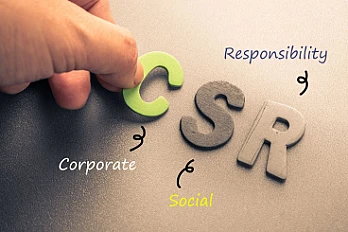Harry Wood | 25 November 2024
In Conversation with ... Anneke Magendans

Harry Wood | 25 November 2024

As the global apparel industry grapples with the complexities of social and environmental sustainability, corporate social responsibility (CSR) experts like Anneke Magendans, a specialist focused on improving standards across global supply chains, are at the forefront of change. With years of experience driving CSR initiatives, Magendans sat down with us to take a look at the challenges and future of CSR in the apparel industry. In this interview, she shares her thoughts on navigating the landscape of sustainability and importance of responsible sourcing.
“Sustainability requires a long-term view and investments,” says Magendans, adding that, for small and medium-sized enterprises, these demands can pose significant challenges. “Global supply chains are very complex, which makes it difficult to ensure sustainable sourcing and traceability.”
Despite these hurdles, recent history shows progress. The Rana Plaza disaster in Bangladesh, a turning point for the industry, led to a wave of initiatives aimed at improving labour conditions in one of the world’s largest garment-producing nations.
In the wake of the Rana Plaza tragedy, multiple organisations formed initiatives like the Accord on Fire and Building Safety and the Alliance for Bangladesh Worker Safety. “Under these initiatives, a lot has improved in Bangladesh’s RMG sector,” says Magendans. A significant development in recent years has been the RMG Sustainability Council, a national initiative that continues the work of earlier programs. “It carries forward significant improvements in worker safety,” Magendans notes.
One of Magendans’ most pivotal roles was as project manager of the Supplier Qualification Program, commissioned by a major German retailer and implemented by GIZ Bangladesh. Through this work, “fire, electrical, and structural improvements were made in participating factories,” she shares. The initiative didn’t just stop at physical safety; it also provided health services, supported women’s empowerment, and emphasised chemical and environmental management.
“Furthermore, the programme focused on productivity,” Magendans adds, stressing the holistic nature of the project.
Building on the Supplier Qualification Program, Magendans recently completed another project commissioned by the German Ministry of Development Cooperation. The project, in collaboration with Particip GmbH, RedOrange Communications, and COEL on behalf of GIZ Bangladesh, trained 35,000 workers to advocate for social and environmental change. Additionally, mid-level management in 75 factories received training to better support workers’ concerns and enact necessary changes.
“It’s about encouraging both workers and management to embrace CSR as a path to meaningful change, she says.
However, while brands and buyers have contributed to CSR efforts, Magendans points to underlying issues that complicate these efforts. She says: “Many irregularities occur because of improper buying practices."
With the cost of compliance often resting on suppliers, a significant imbalance persists. “Buyers need to understand that it is a shared responsibility,” she adds, alluding to the role international due diligence legislation plays in motivating brands to adopt better CSR practices.
For true transparency and accountability, Magendans believes the industry needs a shift in perspective. “Instead of managing risks, the focus needs to shift to creating value,” she explains. She advocates for deeper partnerships across sectors, including collaborations with competitors and governments. This, Magendans argues, is essential for a more resilient and responsible supply chain.
When asked about the role of government, Magendans is direct: “The government should be involved more,” she says. Although laws and regulations are in place, enforcement remains weak, which hampers progress in the field. Another critical focus area for CSR strategies, according to Magendans, is gender equality in the workplace.
“CSR strategies should focus on enabling women to advance into leadership and decision-making positions,” she tells us. In Bangladesh, this goal is especially challenging due to societal norms, but Magendans remains optimistic about the gradual progress being made.
The fast fashion industry, with its emphasis on volume and low-cost production, represents one of the biggest obstacles to sustainable change. “Fast fashion has created a downward spiral toward more and cheaper,” says Magendans. She says that while recycling and reusing materials are steps in the right direction, the industry ultimately needs to shift to producing fewer, higher-quality products. Yet, Magendans sees a key component of this change lying with consumers. “As long as consumers don’t change their buying behaviour, it will be very challenging for the industry to change,” she argues.
To further strengthen CSR in fashion supply chains, Magendans highlights the need for collaboration with local communities and government bodies. She points to Bangladesh as a success story in progress, noting that, “many things have changed over the past 10 years already, especially in the field of workplace safety.” Looking to the future, she hopes to see improvements in workers’ rights. “Involving workers in decision-making processes leads to greater commitment and will ensure a stable working environment,” she says. For Magendans, this stability isn’t just beneficial to workers; it’s a win for the industry as a whole.